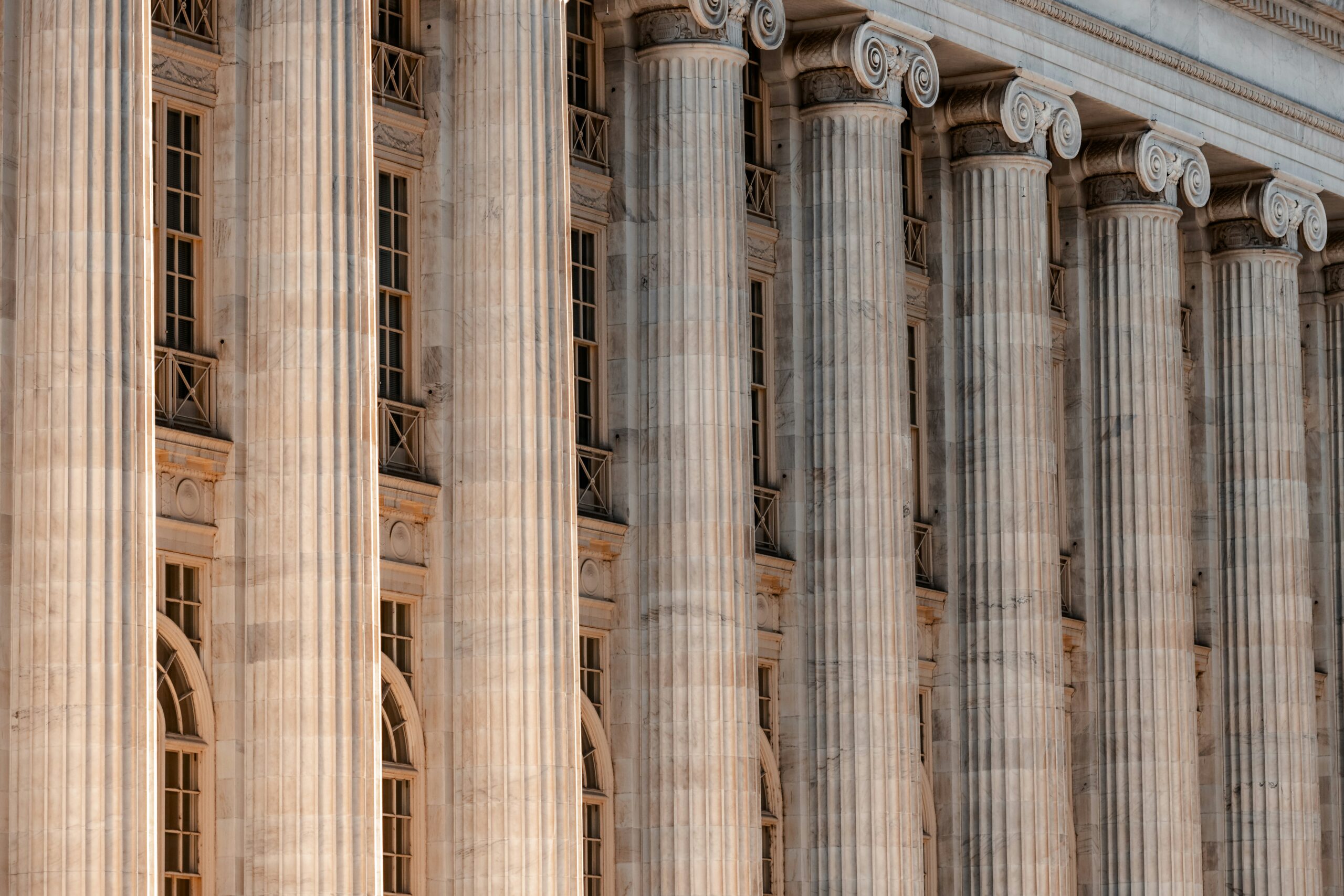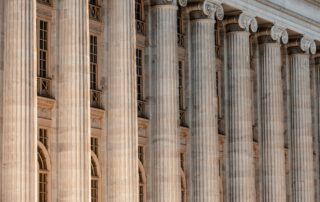Emerging Litigation Podcast
What DEI Changes Mean for Employers Featuring Patice Holland
As political and public scrutiny of Diversity, Equity, and Inclusion (DEI) programs grows, employment attorney Patice Holland of WoodsRogers joins the Emerging Litigation Podcast to explain how employers—especially federal contractors—can reassess DEI initiatives while staying compliant with discrimination laws, navigating shifting enforcement priorities, and managing legal, operational, and reputational risk. Tune in now!
Wildfire Litigation: Building a Case and Establishing Liability with Ed Diab
In this episode of the Emerging Litigation Podcast, you will discover the legal complexities of wildfire litigation as Ed Diab, founding partner of Diab Chambers LLP, unpacks the strategies used to establish liability against utility companies in the wake of Southern California’s devastating January 2025 wildfires. With over 100 lawsuits filed against power providers like Southern California Edison, plaintiffs—including public entities, individuals, and insurers—face an uphill battle proving negligence and inverse condemnation claims. Ed shares insights on case-building strategies, the role of expert investigations, key legal defenses raised by utilities, and the evolving litigation landscape. Tune in for a deep dive into how these high-stakes cases unfold. Don't miss this episode!
Appellate Lawyers at Trial: Don’t Wait Until Your Ox is in the Ditch with Jeff Doss
In this episode of the Emerging Litigation Podcast, you will discover how appellate counsel can strengthen trial strategy and improve post-verdict outcomes in high-stakes cases. Our guest, Jeffrey P. Doss, a partner in the White-Collar Criminal Defense & Corporate Investigations practice group at Lightfoot, Franklin & White LLC, explores their critical role in error preservation, evidentiary challenges, and navigating appeals. Don't miss this episode!
A Shameless Plug for Our Content Services
Your content marketing is everything you’ve ever dreamed of. Right?

Critical Legal Content was founded by Tom Hagy, former Editor & Publisher of Mealey’s Litigation Reports and VP at LexisNexis, founder of HB, current litigation podcaster and editor-in-chief. CLC’s mission is to help smaller firms and service providers not only create content — blogs, articles, papers, webinars, podcasts (like the stuff on this site) — but also to get it out there. How? Via social media, this website, your website, and potential via our podcast and journal which we publish in collaboration with vLex Fastcase and Law Street Media. The goal is to attract readers and dizzy them with your brilliance.
*Inspired by actual events.
Create content like a real legal publisher.
Emerging Litigation Journal
Arson Investigations: Best Practices for Establishing Fraud and Avoiding Bad Faith
Arson-related insurance claims are rising—and so are the risks for insurers who don’t investigate thoroughly and by the book. Guest contributor Melissa A. Segel breaks down how carriers can use modern tools, smart strategy, and legal precision to uncover fraud while steering clear of costly bad faith pitfalls. A must-read for anyone navigating the intersection of fire science and insurance law.
Facing PFAS lawsuit, Apple claims watch bands are safe, but what does the evidence say?
Amid rising concerns about toxic chemicals in consumer products, Apple finds itself under scrutiny. Guest contributor Justin Ward examines the controversy surrounding Apple’s smartwatch bands after researchers detected elevated levels of PFAS, or “forever chemicals.” While Apple insists its products are safe, a class action lawsuit alleges deceptive marketing and health risks, raising broader questions about accountability and chemical transparency in tech and apparel.
AI tool that summarizes evidence from cracked phones wades into uncharted constitutional waters
As law enforcement agencies adopt cutting-edge AI to process digital evidence, constitutional questions are quickly coming into focus. Guest contributor Justin Ward explores how Cellebrite’s new AI-driven tool—capable of scanning and summarizing entire phone contents—may clash with Fourth Amendment protections. While the tech promises efficiency, civil rights advocates argue it opens the door to warrantless digital dragnets, with court interpretations varying widely across jurisdictions.
HB Webinars on CeriFi LegalEdge
Litigator’s Duty of Reasonable Inquiry in Rule 26(g)(3): Guiding a Client Through Discovery
Litigator's Duty of Reasonable Inquiry in Rule 26(g)(3): Guiding a Client Through Discovery Bad things can and often do happen when lawyers over delegate e-discovery responsibility to their clients or vendors. Courts continue to express concern and exasperation over the conduct of counsel and parties in discovery and their failure to meet their affirmative obligations to make reasonable efforts to find discoverable material and that discovery responses were complete and correct when made. It can be difficult for counsel to draw bright-line distinctions between acceptable and unacceptable conduct in preserving information and in conducting discovery, but counsel is not without guidance. This panel will provide concrete examples of the oft-given advice that counsel should be "actively involved" in discovery and then follow up and validate processes. The program will discuss the role and content of checklists and how to establish that counsel took those affirmative steps. The panel will also discuss key case law in this area. Listen as this panel of experienced e-discovery attorneys and litigators demonstrates what counsel must do to meet the duty of reasonable inquiry. Ralph Losey Attorney Partner Losey John J. Rosenthal Partner Winston & Strawn Jennifer Sutherland Attorney Gilman & Bedigian Ariana J. Tadler Founder and Managing Partner Tadler Law atadler@tadlerlaw.com A LIVE CLE Webinar! Monday, April 3, 2023 1:00pm Eastern 90 minutes Why do lawyers and parties continue to struggle with managing discovery? What is "knowledge, information, and belief formed after a reasonable inquiry"? What have courts identified as less than reasonable inquiry into a client's discovery undertakings and what are the possible consequences, including sanctions? How can counsel overcome client objections to their involvement in discovery? Counsel's duty to supervise client discovery Strategies for staying actively involved in discovery Strategies for validating client's searches and productions Strategies for when client performance falls short [...]
What DEI Changes Mean for Employers Featuring Patice Holland
As political and public scrutiny of Diversity, Equity, and Inclusion (DEI) programs grows, employment attorney Patice Holland of WoodsRogers joins the Emerging Litigation Podcast to explain how employers—especially federal contractors—can reassess DEI initiatives while staying compliant with discrimination laws, navigating shifting enforcement priorities, and managing legal, operational, and reputational risk. Tune in now!
Arson Investigations: Best Practices for Establishing Fraud and Avoiding Bad Faith
Arson-related insurance claims are rising—and so are the risks for insurers who don’t investigate thoroughly and by the book. Guest contributor Melissa A. Segel breaks down how carriers can use modern tools, smart strategy, and legal precision to uncover fraud while steering clear of costly bad faith pitfalls. A must-read for anyone navigating the intersection of fire science and insurance law.
















